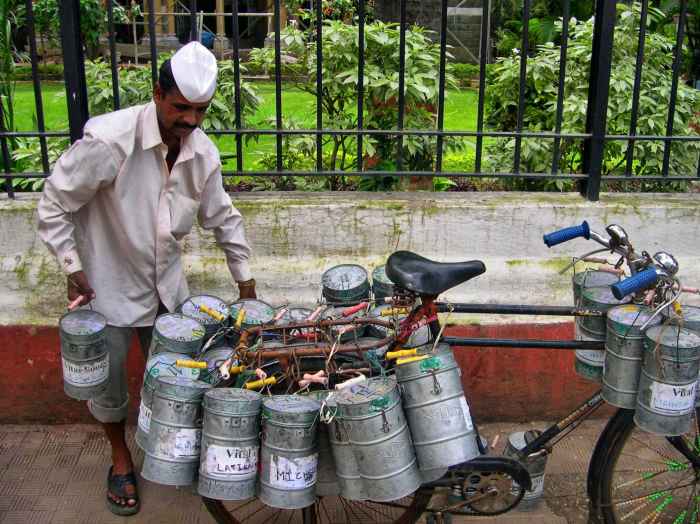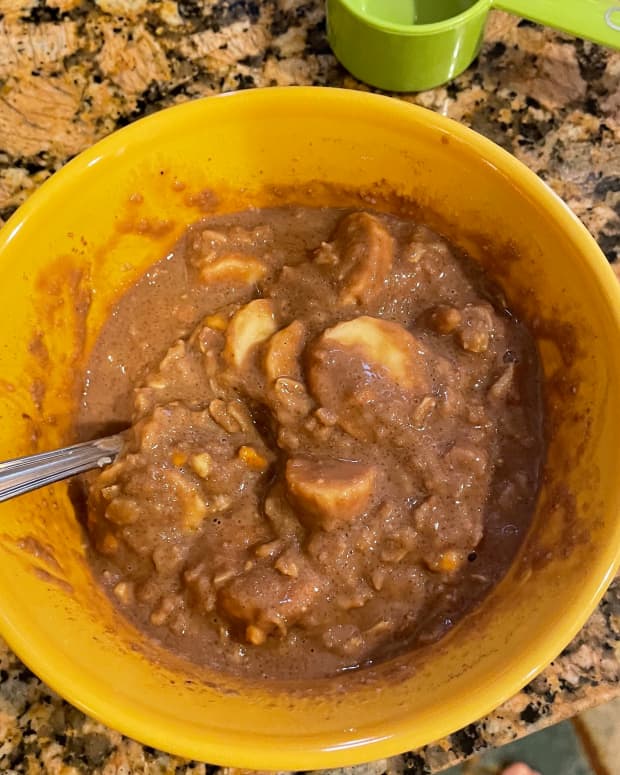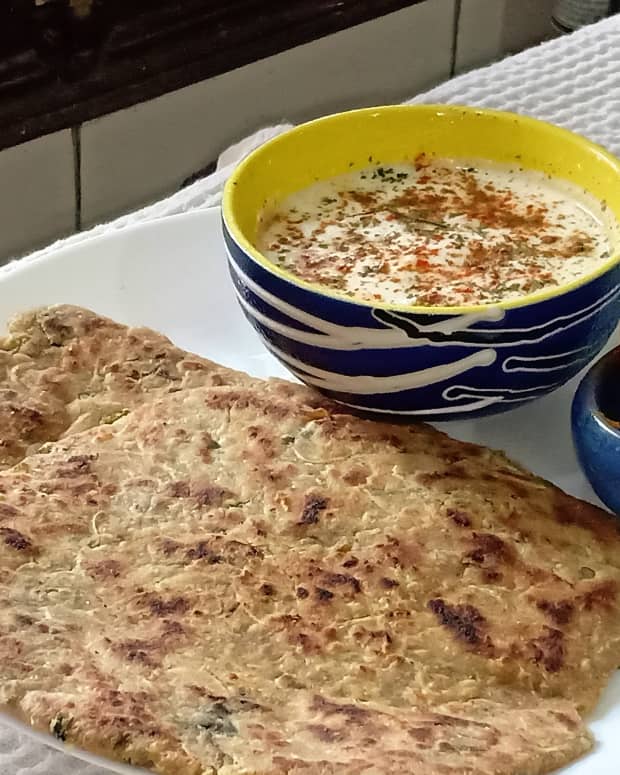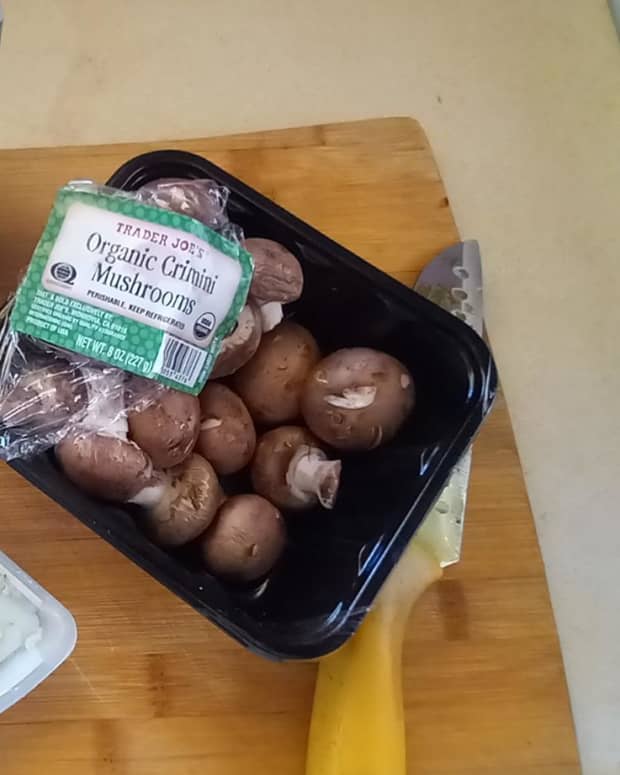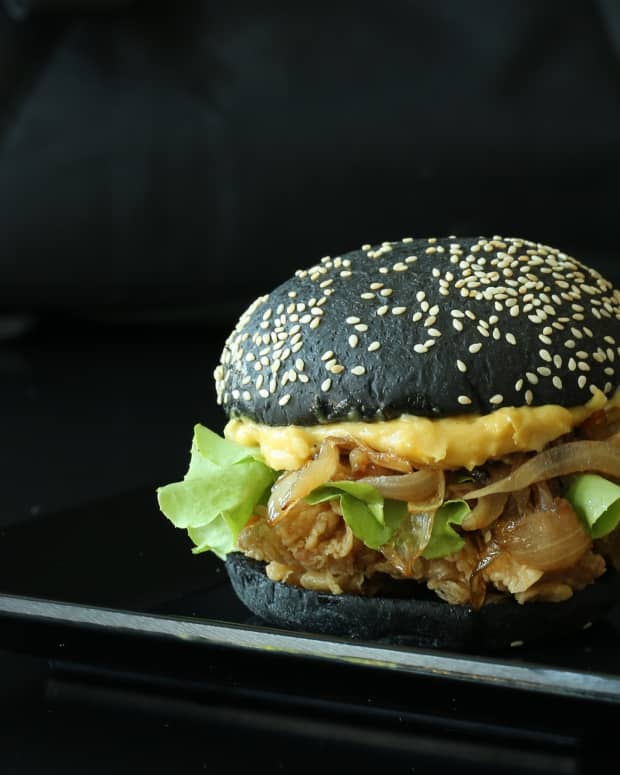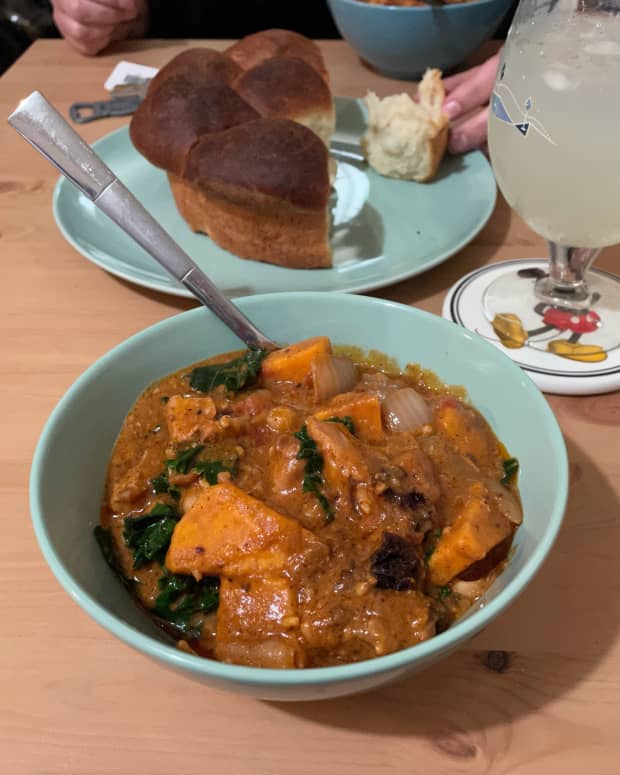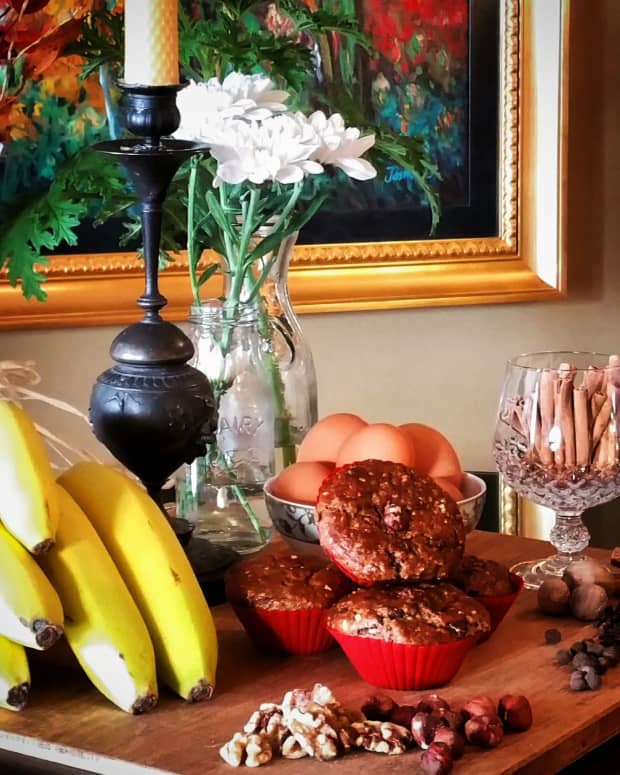Amazing Dabba Wallahs Deliver Mumbai Lunches
I've spent half a century (yikes) writing for radio and print—mostly print. I hope to be still tapping the keys as I take my last breath.
Every workday, tens of thousands of lunches are delivered across Mumbai with mind-boggling efficiency. The home-cooked meals arrive promptly, carried to their destination by train, bicycle, cart, and on foot. An ingenious tracking system ensures that the correct lunch reaches the correct person at the correct time.
Unique Delivery System
We can dial the date machine back to 1890, when an Indian entrepreneur named Mahadeo Havaji Bacche spotted a business opportunity. Bacche was a banker, and he wanted a home-cooked meal during his lunch break, so he hired a man to fetch his meal from his home. Other people liked the idea, so Bacche hired a team to make deliveries.
He devised a system of colour-coding and hand-painted numbers and letters to ensure the right lunch got to office workers in what was then Bombay, called Mumbai today.
Another version of this story has Bacche being the first dabba wallah, delivering food to a British administrator.
The system has grown to the point where about 80 million lunches are delivered across India each year. The centre of the trade is Mumbai where it was invented and where an estimated 150,000 to 200,000 lunches reach workers’ desks each day.
What Does Dabba Wallah Mean?
The people who make the deliveries are known as tiffin wallahs or dabba wallahs (sometimes called dabbawalas). In Hindi, the word wallah refers to someone in charge and is usually paired with another noun. Tiffin is an Anglo-Indian word for lunch or a snack. A dabba is a lunch box.
The dabba is a metal can with four compartments, a bit like a small milk churn. In the bottom level goes the rice, above it the curry, then comes flatbread such as naan or paratha. The top level contains dessert.
From Home to the Workplace
The journey begins in the home. Gender roles in India still mostly work along traditional lines, so wives and mothers cook up lunch and pack it into the dabba.
At about 10 a.m., the meal is picked up by a dabba wallah and taken to the nearest railway station where the first sorting begins.
The lunches are sent off to numerous other stations across the city where another team of dabba wallahs sorts them and sends them off to their destination. When lunch is over, the process operates in reverse, and the dabbas are collected and returned to their homes. Each dabba changes hands six times in each direction of its journey.
How Much Does It Cost?
Emma Henderson in The Independent writes that this service costs “Around 450 rupees a month (£5.40 or $6.40)—depending on distance. That’s about the average for a sandwich and a packet of crisps in a city, let alone a delivered meal. And on the other end of the deal, each dabbawala is self-employed and paid the same, around 8,000 rupees a month, translating to about £95 ($115).”
There's A Cooking Service, Too
And, for those that don’t have someone at home to prepare lunch, the dabba wallahs have a solution. They have set up a centralized kitchen, and their website announces that “Be it dal or be it a gravy, our food is prepared under hygienic conditions using refined oil which best takes care of your heart, because for us your little heart is utmost important.”
Amazing Efficiency
How many times in a Western restaurant has a waiter arrived at your table with somebody else’s meal, or the poached egg on rye turns out to be sunny-side up on whole wheat?
Imagine the potential for a mix-up in tens of thousands of deliveries across a bustling city of 18 million in torrential monsoon downpours or searing summer heat. But, it almost never happens that a meal goes missing.
1 Mistake per 6 Millions Deliveries
Emma Henderson writes that “… the president of the Mumbai Tiffinmen’s Association claims that dabbawalas only make a mistake once in every six million deliveries, translating to about one going missing every other month.”
The system is so efficient that it has been studied by the Harvard Business School and other universities. Forbes Magazine is so impressed that it has bestowed upon the dabba wallahs a 6 Sigma performance rating. What this means is that the dabba wallahs enjoy a quality assurance score of 99.9999999 percent.
There are no managers or technology to gum things up, and almost all the dabba wallahs are illiterate.
Who Are the Dabba Wallahs?
For those who believe that socialism is a recipe for inefficiency, the dabba wallahs provide an inconvenient truth. Each dabba wallah receives the same salary regardless of the number of customers served, age, or experience. They are all individual contractors and equal shareholders in the Dabba Wallah Trust.
The entire Mumbai crew of about 5,000 is split up into 200 self-managed teams. Each has a supervisor who is selected by team members and is usually the most experienced person.
The jobs are sought-after, and to get one a substantial fee of 30,000 rupees ($430) has to be paid to the dabba wallahs’ union. But, once in, a worker can enjoy employment for life on an income that is good by Indian standards.
Bonus Factoids
- Dabba wallah translates into “one who carries the box.”
- If the originator of the lunch has a history of not being ready when the dabba wallah calls to pick it up, that customer will be dropped. The system depends on precise timing, and the dabba wallah cannot hang about waiting for the lamb korma to finish cooking.
- Prince Charles and Sir Richard Branson are great admirers of the dabba wallahs. The prince visited them in 2003 and invited three on an all-expenses-paid trip to his wedding to Camilla Parker-Bowles.
- The 2013 movie The Lunchbox grew out of the unlikely occurrence of a dabba going adrift and starting a romance between an accountant of a certain age and a lonely, young housewife.
Sources
- “A Bombay Lunchbox.” Luke Harding, The Guardian, June 24, 2002.
- “How Dabbawalas Became the World’s Best Food Delivery System.” Emma Henderson, The Independent, August 7, 2017.
- “The Best Logistics Organization in India Uses No Technology and a Mostly Illiterate Workforce.” Peter High, Forbes, February 23, 2015.
- Mumbai Dabbawala.
- “25 Interesting Facts About Dabbawalas.” MSN, undated.
© 2018 Rupert Taylor
Comments
Viet Doan from Big Island, Hawaii on August 22, 2018:
It's mind boggling that this complex lunch delivery system works so efficiently! I first learned about this from the movie The Lunchbox (fabulous movie and I'm a big fan of the actor Irrfan Khan) and now I know more thanks your wonderful article, Mr.Taylor!

